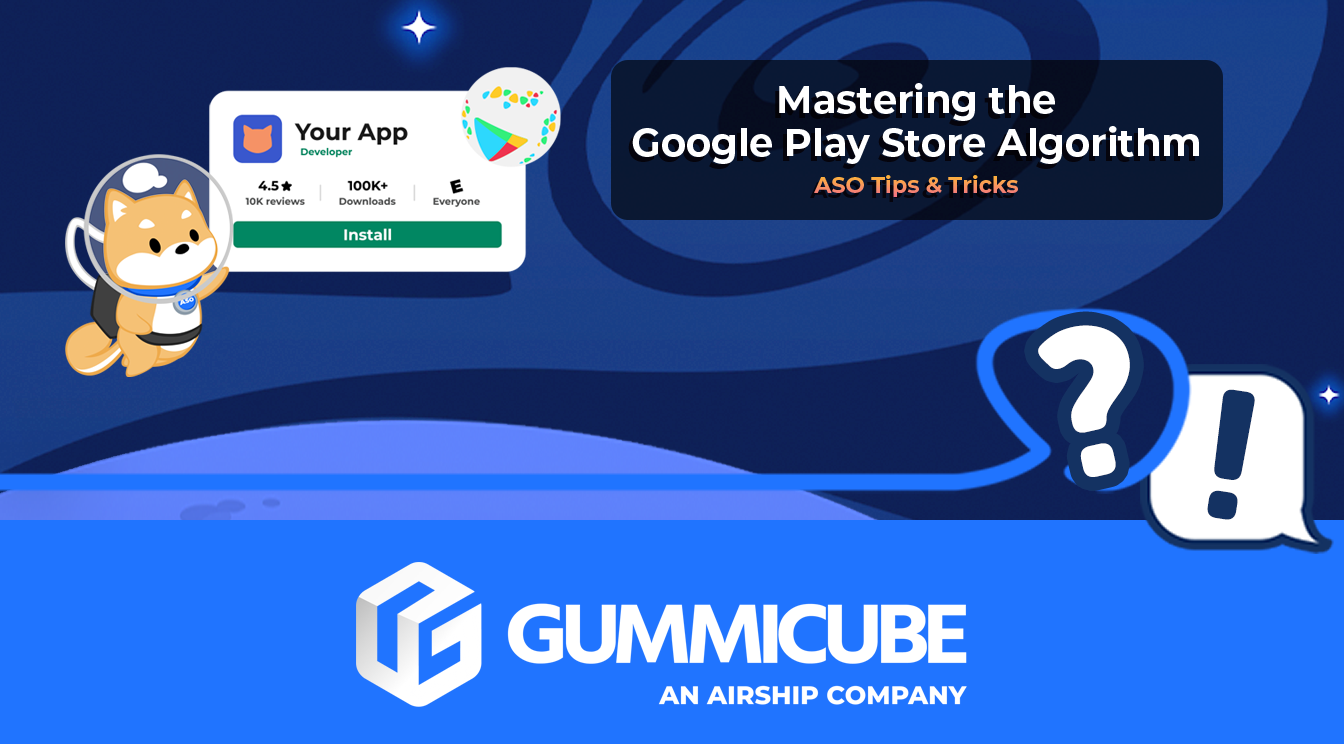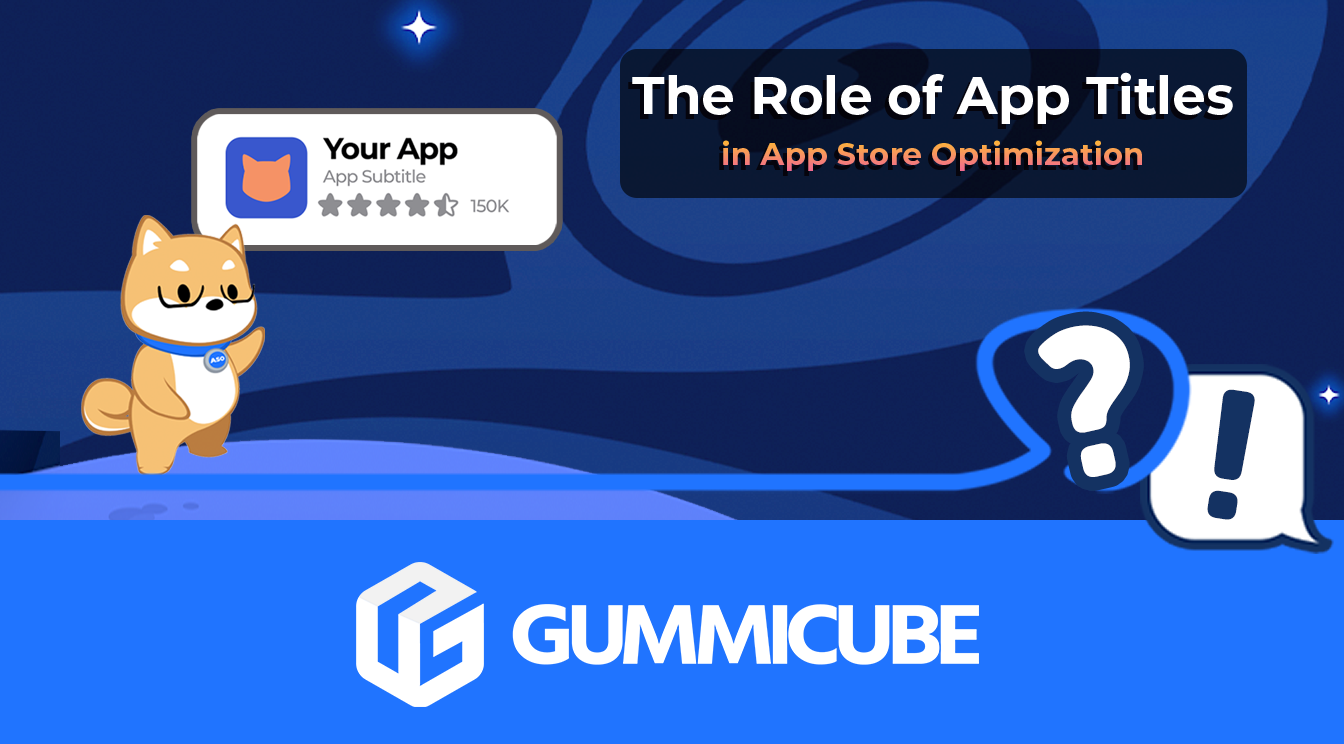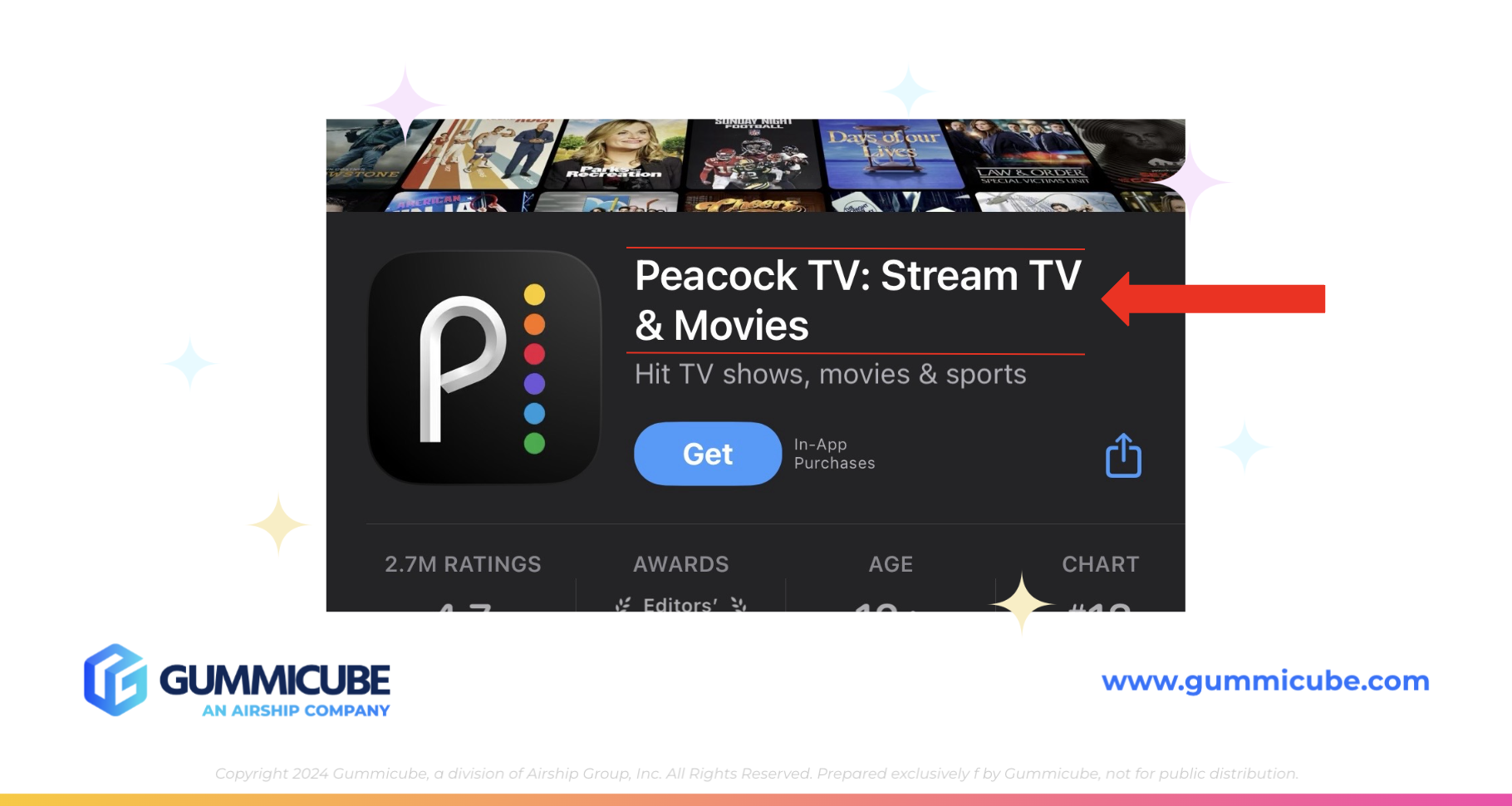
Mastering the Google Play Store Algorithm
Posted on April 16th, 2025
Learn how to work with the Google Play Store algorithm using high-level ASO strategies that improve visibility, performance, and long-term app success.

When it comes to app store optimization (ASO), app titles can often be underestimated. However, they hold a lot of power in shaping an app’s visibility, engagement, and ultimate success. Your app title is not just a name; it’s the first impression of your app and a gateway to attracting and retaining users. By crafting a title that is clear, keyword-rich, and user-focused, you can make a lasting first impression while optimizing for app store algorithms.
Understanding the pivotal role of app titles is essential to thriving in today’s highly competitive app marketplace. This blog explores the significance of app titles in ASO, dives into Apple App Store guidelines, and examines the role of keywords, A/B testing, and the value of ongoing optimization to boost engagement and retention. Whether you're launching a new app or refining an existing one, a thoughtful title strategy can significantly impact your app's discoverability and success.
App titles are more than brand identifiers—they're fundamental to your app's discoverability and click-through rates (CTR). A well-optimized title directly influences how your app ranks in search results and whether users feel compelled to click on it.
Search algorithms prioritize metadata when ranking apps, and the app title carries the most weight. Including relevant, high-performing keywords ensures that your app appears in searches related to its core function. Beyond discoverability, your app title sets the stage for user expectations. A clear, concise title helps users immediately understand your app's purpose, building trust and encouraging downloads.
Here are key reasons why app titles matter:
On the flip side, a poorly crafted title can have serious repercussions. Ambiguity, irrelevant keywords, or keyword stuffing can confuse users and even harm your app's ranking. This makes optimizing your title a non-negotiable element of ASO. With that in mind, understanding the Apple App Store's specific requirements for app titles is the first step to creating a winning strategy.

Apple’s App Store sets clear guidelines to ensure app titles are user-friendly and effective. Following these rules not only prevents app rejection but also optimizes your title for maximum impact.
Key guidelines include:
By aligning with these guidelines, you ensure your title not only complies with Apple’s standards but also delivers maximum ASO benefits. Next, we’ll explore how to leverage keywords strategically for greater visibility.
Keywords are the foundation of ASO, and their strategic placement in app titles can significantly influence rankings and discoverability. By including the right keywords in your title, you align your app with user searches and maximize its chances of being found.
Effective keyword strategies include:
While incorporating keywords is essential, the process doesn’t end here. Testing and refining your titles through A/B testing and build releases ensures they resonate with your audience and drive engagement.
Mastering the use of keywords in your app title is not just about visibility—it’s about connecting with the right audience and setting the stage for user satisfaction. A well-chosen keyword strategy ensures your app is discovered by users who are genuinely interested in what you offer, increasing the likelihood of downloads and long-term engagement. Remember that keyword trends and user behavior evolve over time.
To stay ahead, it’s crucial to continuously monitor performance, adapt to market shifts, and refine your approach. By treating keywords as a dynamic component of your ASO strategy, and pairing them with effective A/B testing, you can ensure that your app title remains competitive, relevant, and impactful in the crowded app store landscape. Transitioning from keyword optimization, the next step is understanding how testing title variations can further enhance your app’s success.
Even with thorough research, predicting what will resonate with users can be challenging. A/B testing allows you to experiment with different title variations to identify the one that performs best. This data-driven approach can significantly improve downloads, engagement, and user retention. However, it’s essential to note that on the Apple App Store, any changes to your app title must be submitted as part of a new app build realease. This requirement ensures that all updates are intentional and aligned with your app’s overall development cycle.
Key elements to test include:
Since changes must be tied to a build release, it’s critical to plan A/B tests strategically. Incorporate title variations as part of your app’s regular update schedule to maintain compliance while improving performance. Tools like SplitCube simplify this process, enabling you to test multiple variations efficiently and make informed decisions based on real-world data.
Testing isn’t just a one-time effort—it’s a cycle that ensures your titles remain effective as trends and user preferences evolve. By treating A/B testing as an integral part of your release strategy, you can continuously refine your app title and optimize for success.
Optimizing app titles is an ongoing effort that requires vigilance and adaptability. Staying ahead of trends and competitor strategies ensures your title remains effective in a constantly evolving market.
Here’s how to refine your titles over time:
By regularly evaluating and updating your app title, you ensure it stays relevant, engaging, and effective.
Refining your app title is much more than a one-time effort—it’s an ongoing strategy that adapts to market fluctuations, shifts in user behavior, and the competitive landscape of the app store. Each change you make should be data-driven, focusing on insights from user behavior, trends, and performance analysis. Successful app title optimization is about striking a balance between creativity, keyword strategy, and market demands.
Regularly A/B testing within your app in conjunction with the strategies above can provide invaluable insights into how your audience responds to variations in title language, structure, and phrasing. Understanding competitor performance helps you identify areas of opportunity while avoiding patterns that may lead to stagnation.
Titles are one of the first points of interaction with your audience, so consistently maintaining their relevance and freshness gives your app the best chance to engage users and retain their attention over time. By implementing these pro tips and maintaining a long-term view, you position your app for sustained growth and visibility in the app store.
While optimizing app titles, it’s easy to fall into traps that can hurt your app’s performance. Common mistakes include:
Avoiding these pitfalls ensures your app title remains user-focused and algorithm-friendly.
App titles are more than just names—they are a critical piece of your app’s ASO puzzle. A well-optimized title enhances discoverability, drives clicks, and sets the stage for user engagement and retention. By adhering to Apple’s guidelines, strategically incorporating keywords, and leveraging A/B testing, you can create a title that resonates with users and stands out in search results.
Navigating the intricacies of app store optimization can feel overwhelming, but it doesn’t have to be. Whether you’re refining an existing app title or planning your next A/B test, we’re here to help you explore the best strategies and tools for success. Let’s work together to unlock your app’s full potential. Have questions or need guidance for success? Gummicube is here to help!

Learn how to work with the Google Play Store algorithm using high-level ASO strategies that improve visibility, performance, and long-term app success.

Boost app installs with smarter App Store marketing. Learn how ASO, creative assets, and paid strategies work together to drive growth and visibility.

Choosing the right app category is crucial for ASO success, impacting visibility, rankings, and user growth. Discover how the wrong choice can hold you back.